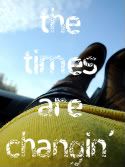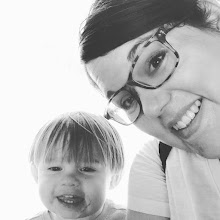Normal. The word can hold a pretty heavy punch. There's something
about the word that can strip away the urgency of what you're feeling.
Sometimes that's a good thing. Sometimes it's not. As I began to see doctors
the first weeks after Nate was born I kept being told, "What you are
experiencing is normal." But you
don't know what I'm thinking, became my inner monologue. You wouldn’t say that if you knew what I was
thinking. It seemed absolutely impossible that what I was feeling, which I
later learned was postpartum depression, could ever be considered “normal.” But
it was. When I call postpartum depression “normal” I’m not trying to trivialize
it or generalize it, and I’m certainly not trying to strip away its urgency. I’m saying that if you have postpartum depression you are normal
because…
you are not alone
you are not to blame
you are not a lost cause
So that we’re on the same page, the CDC defines postpartum
depression symptoms as: Trouble
sleeping when your baby sleeps (more than the lack of sleep new moms usually
get); Feeling
numb or disconnected from your baby; Having
scary or negative thoughts about the baby, like thinking someone will take your
baby away or hurt your baby; Worrying
that you will hurt the baby; Feeling
guilty about not being a good mom, or ashamed that you cannot care for your
baby.¹
One of the most terrifying and destructive qualities of postpartum
depression is thinking that you are the only person experiencing what you are
experiencing. According to the CDC, however, “8 to 19% of women reported having
frequent postpartum depressive symptoms.”¹ That’s a lot of women. That means
you know a lot more women who have experienced postpartum depression than you
might realize. If it's so common, then, why aren’t we talking about it? Because
talking about depression makes people uncomfortable. Because we don’t have (or
at least don’t always understand) an explanation for what we’re experiencing. But
mostly because we’re scared. We’re afraid of what our feelings mean, and we’re
fearful of receiving judgmental reactions. Even though I’m convinced I should
share my story and have shared it at least in part with many people, typing
these words still makes me uneasy. I’ve been writing and rewriting this post
for over a week. I'm afraid of what people will think when they read it. Will
they think I don't actually love Nate? Will they think there’s something wrong
with me? Will they think I shouldn't be a mom? Will they think they shouldn’t ever become a mom? Will
they think...will they think...will they think...?
The first two weeks of recovery were the hardest days of my life.
We had to see a lactation consultant several times a week, we bought and moved
into our first house, and I was readmitted into the hospital a week after
delivery with a uterine infection. All the while, we were in a taxing cycle of
attempting to breastfeed, pumping, supplementing with formula, and trying to
sleep. I knew logically that difficulty breastfeeding wasn’t my fault, but it
was impossible to shake the feelings of failure when I couldn’t do what I
thought my body should be able to do. This feeling was only intensified while
in the hospital the second time. I couldn’t feed him, comfort him, or get him
to sleep. I felt so ashamed, and I believed that Nate would be better off with
someone else. I couldn’t breastfeed, so
what difference would it make if he were adopted by someone else? I had
even convinced myself that Nate didn’t know I was his mom. I felt so
disconnected from him, and it was devastating.
A couple of days after being discharged from the hospital the
second time, one of the standard postpartum depression survey questions popped
into my head. I have no idea why. There was no stimulus. I think I was washing bottles,
and suddenly there was the question: Have you ever had thoughts of hurting
yourself or your baby? No. But from
that moment on, it was all I could think about. I was not actually contemplating
hurting myself or Nate, but I couldn’t get the thoughts out of my head. The
harder I tried not to think them, the more they swallowed me up. I felt extreme
guilt and fear because I could not honestly say that I had never thought about
hurting myself or Nate. I was in a constant state of destructive and obsessive self-analysis,
trying to decipher the source of and remedy for the thoughts. At one point the
thoughts became so strong and persistent that I began to believe I was
schizophrenic. I had no other explanation for how my brain was behaving; it was
as though my brain had a mind of its own. I would have anxiety attacks, fearing
that one day I would simply lose control of my brain and do something awful. If
I couldn’t control my thoughts, how could I expect to be able to control my
actions?
I would think about women on the news who drowned their children
in the bathtub. Due to those mental images, I was afraid of giving Nate a bath
for weeks. If I didn’t understand how someone who seemed perfectly normal could
do that, then how could I be trusted not
to do it? This fear gripped my heart in a way that I had never experienced. I
couldn’t enjoy being a mom, and I believed I didn’t deserve to enjoy it. I remember one night looking at Nate and crying,
“I just want to enjoy being your mom so much. I just want to love you and take
care of you. You are so wonderful and beautiful and loveable, so why am I not
happy?” In moments like these I would feel so much shame and guilt. How dare I claim to love my baby if I’m
having the struggles I’m having? The worst part was that I convinced myself
that if I told my midwife or a counselor about my ruminating thoughts they
would take Nate away from me. I was convinced
that if I said them out loud, there would be someone from
social services on my doorstep in a matter of hours.
After two weeks, I had lost all hope of ever feeling better, and if
these feelings were going to be forever, then I just couldn’t do it. I finally
decided to talk to someone—someone I knew wouldn’t report me to DSS. I told her
as much of my deepest, darkest fears as I could stomach to articulate. Relief
washed over me as she said, “Me, too. You are so normal.” This time I
couldn’t respond with, “But you don’t know what I’m thinking,” because she did know, and she still told me I was
normal. Suddenly, I had hope. I didn’t feel great or even good, but that small
amount of hope gave me the confidence I needed to ask for help. Through
counseling and medication, that hope continued to grow. Maybe this actually won’t be forever.
In the first few weeks, I didn't understand that depression and
anxiety can produce thoughts that you just
can't explain. I had to learn that I can’t control whether or not I have
postpartum depression, and because I can’t, I have no reason to feel guilt or
shame over it. The thoughts and fears are from hormones and chemical imbalances
and are not a reflection of the truth. Realizing this condition is out of my
control was at first a terror but is now a comfort. I can’t control the chemicals
in my brain, and there’s no magic formula for ensuring I have a good day rather
than a bad one; therefore, I can rest in the good days, being thankful for them
rather than trying to analyze them, and I can rest in the bad days, knowing that
they won’t last forever.
I can’t choose whether or not I have depression, but I can choose
whether or not I wallow in the darkness. I can’t choose whether or not I have
anxiety, but I can choose whether or not I speak truth to my heart rather than
listening to the lies. I don’t know if the doubt will ever completely
dissipate. I might always struggle with some guilt over how I’ve felt. But I do
know that with every story I hear from other women, the voice of accusation
gets a little weaker. For example, I read a brave woman’s story on NPR today,
and it gave me the confidence to keep writing.² So that’s why I share my story;
you need to know you are not alone, things will get better, and you are normal.
Disclaimer: I am not a psychologist, doctor, or licensed
counselor. This is not a medical journal but a chapter out of my story. I
am not claiming to be an expert on depression or anxiety. I wouldn’t even
consider myself an expert on MY depression and anxiety. I share my story not as
an expert but as someone who really needed the honesty and hope of other
people’s stories in the darkness.













No comments:
Post a Comment